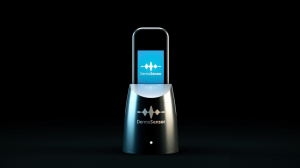DermaSensor has a skin cancer detection rate of 96% and can cut physicians’ missed skin cancers by half, according to two studies in the Journal of Primary Care and Community Health.
The novel, point-of-care Elastic Scattering Spectroscopy (ESS) device is used for skin cancer detection in primary care.
One study assessed the stand-alone performance of the ESS device, while the second evaluated how device use impacted primary care physicians (PCPs) skin cancer detection and management.
Compares Favorably to FDA Target Rate
In the multicenter validation study, 1,005 patients and 1,579 lesions were evaluated across 22 primary care sites. Dermatopathologic analysis confirmed 224 skin cancers, including melanomas, basal cell carcinomas, and squamous cell carcinomas. The ESS device was found to have a skin cancer detection rate, or sensitivity, of 96%. This performance level compared favorably to the 90% target based on dermatologists’ sensitivity in the literature, which is also the FDA’s minimum required sensitivity for melanoma.
For negative device results, the likelihood that a lesion was benign (i.e., negative predictive value (NPV)) was 97%. For positive results, the likelihood a lesion was cancerous (i.e., positive predictive value (PPV)) ranged from 6% for the lowest score of 1 to 61% for the highest score of 10.
The companion clinical utility study with 108 physicians found that use of the ESS device significantly enhanced physicians’ ability to identify and correctly refer skin cancers and improved their overall skin lesion management accuracy. PCPs correctly referred 91.4% of malignant lesions when aided by the device, compared to just 82.0% without it—a 50% reduction in missed cancer referrals (from 18.0% to 8.6%).
“I have spent most of my career researching and using skin cancer diagnostic tools. It has been a long-time unaddressed goal of the dermatology and primary care communities to have an easy-to-use tool that can provide an automated risk assessment for suspicious lesions,” says Study Author Laura Ferris, MD, PhD, the Chair of Dermatology at University of North Carolina at Chapel Hill in Chapel Hill, NC, in a news release. “Now that DermaSensor is the first such tool available for PCPs and, given the clear device benefits that our study and others have demonstrated, I am optimistic for the impact this device will have on skin cancer detection and care.”


